Following our debut of our world exclusive All-Aluminum Radiator for the B8 S4/S5, we are excited to announce another world’s first release: CSF’s highly anticipated High-Performance Intercooler System for the new C8 RS6 and RS7.
We’ve teamed up with leading VAG specialists from Southern California, Pacific German, to bring this critical intercooler system to market, unlocking the full potential and increasing power goals of the new C8 platform.
CSF has again teamed up with strategic manufacturing partners, PWR, to bring Formula-1 performance to the aftermarket.
Design & Engineering
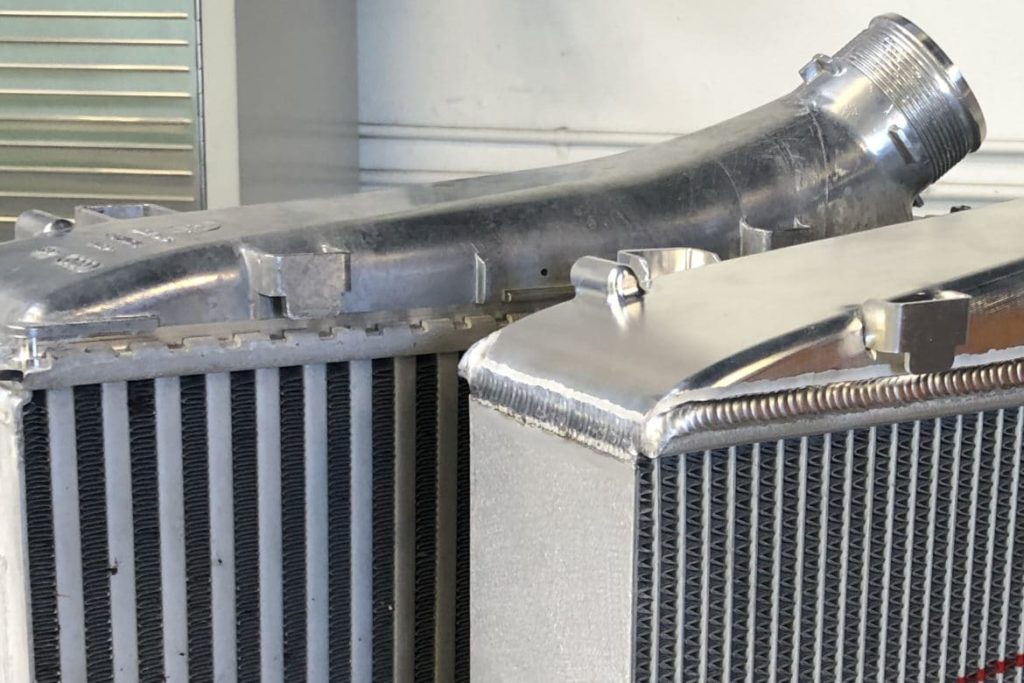
| OEM | CSF by PWR | |
|---|---|---|
| # Of Tubes | 22 | 45 |
| Tube Height | 7mm | 3mm Rolled Tube |
| Fin Height | 7mm | 4.85mm |
| Design | Crimped w/ Gasket Cast Endtanks | 100% TIG Welded CNC Billet End Tanks |
Core Technology
The most important feature of the CSF by PWR RS6/RS7 Intercooler System is the Formula-1 grade intercooler core. CSF’s strategic relationship with PWR has allowed the inclusion of this core, which is unlike any other available in the performance aftermarket.
- 3mm tall, rolled tubes with turbulated inner fins maximize the dissipation of heat from the charge air flowing through the pressure side of the intercooler core
- The 4.85mm tall multi-louvered fin is the most efficient fin in the high-performance industry, with performance similar to PWR’s Formula-1 grade race intercooler cores
Proven on CSF’s similar air-to-air twin intercooler systems, for both Porsche 992 Turbo/S and GT2RS, these cores eliminate heat soak and lower Intake Air Temperatures (IATs) to allow maximum performance of the vehicle for an extended period of demanding driving conditions.
As evident from the dyno testing (see graphs below), one of the biggest advantages of CSF’s new C8 RS6/RS7 Intercooler System is the recovery speed in dissipating heat from the turbocharger system.
With the OEM intercoolers, the new C8 platform starts to exhibit heat soak and run-away increases in IATs, which then triggers the ECU system to pull timing out of the engine and subsequently lowers performance.
CNC Machined Billet End Tanks
As with our other products produced through our PWR partnership, our new RS6/RS7 Intercoolers feature 100% TIG-welded machined billet aluminum end tanks vs. the OEM crimped cast aluminum end tanks. This feature is not only aesthetically pleasing, but is also stronger for longevity and durability on high-performance vehicles. The CNC machined billet end tanks are ready to withstand increased boost pressures from bolt-on modifications, higher performance tunes, as well as upgraded turbochargers.
With the enthusiasm that RS6/RS7 customers have for their vehicles, the platform is already pushing past 800 WHP (on its way to 4-digit power levels) and the CSF intercoolers are one of the critical components in reaching these power goals.
Dyno Testing
In-depth engineering processes and testing alongside leading VAG tuning/supercharger specialist, VF Engineering, and Pacific German allowed us to make this high-level vehicle’s components just as refined as the vehicle itself.
We tested the CSF intercooler upgrade with a tuned RS6 at VF Engineering using their in-house Mustang four wheel dyno. In doing so, we were able to see real world abuse on the stock intercoolers by starting with a tuned RS6, performing several back-to-back dyno pulls with 50 seconds cool down in between pulls (1-minute intervals with 10 second pulls). We then flashed the car to the OEM tune and ran the same back-to-back pulls on the dyno. Once we had the data collected for the OEM intercoolers, we removed the bumper cover and swapped out the factory units for the upgraded CSF intercoolers, and immediately tested the car again using the same methodology and controlled testing, with a OEM tune and then flashing onto the vehicle, the VF Engineering Stage-2 performance tune.
Tyler Setterstrom, Lead Technician at Pacific German
The dyno cell was 8°F warmer in the afternoon, during the testing with the CSF intercoolers installed, than the morning tests of the OEM intercoolers. However, we saw a huge improvement despite the warmer conditions. With the OEM intercoolers, the temperature rose 20°F on average every pull on the dyno. With the CSF intercoolers, the temperature dropped 4°F on average every pull on the dyno. Some pulls at peak temperatures were 30°F cooler with the upgraded CSF intercoolers compared to the OEM units. The OEM intercoolers began to show signs of heat soak around the 3rd pull, however with the CSF intercoolers recovery was nearly instant and showed minimal signs of heat soak even after the 5th pull.
These two graphs show the comparison of OEM (Left) and CSF Intercoolers (Right) with a factory OEM engine tune on an Audi C8 RS6. As you can see from the graphs above, the OEM intercoolers start to exhibit heat soak early on in the testing, already starting to affect performance on the 3rd dyno pull. IATs go up with engine speed. With the CSF intercoolers, the temperature drops as engine speed increases, and recovery between dyno pulls is very quick.
The second set of graphs compares the OEM (Left) and CSF Intercoolers (Right) with VF Engineering Stage-2 engine performance software. In these graphs, like the previous ones as well, the OEM intercoolers allow for heat to rise as engine speed increases. With the CSF Intercoolers, the intake air temperatures drop as engine speed increases. IATs are much more stable with the upgraded CSF units compared to the OEM intercoolers.
Maximum performance, increased recovery speed, stronger design and more power – another industry-leading design, exclusively by CSF.
Testimonial from QSTuning (United Kingdom)
“We were seeing IATs [intake air temperatures] rising to 80+°C on stock cars with a fifth gear dyno pull. At the time there were limited options. We looked into CSF as I know they do some great cooling solutions on the 991/992 Porsche market. They appeared to have the best solution on the market with F1-grade cores and billet end tanks. We got a set in for our shop car, threw them on and instantly gained 40hp and IATs dropped by around half.”
Alex Collins of QST
From then on we have used CSF intercoolers on all of our higher power RS 6/7 builds and haven’t looked back since.
Check out the full article from Speedhunters: QSTuning: The UK’s Audi Tuning Powerhouse
Product Images ( CSF #8194 & #8194B )
CSF High-Performance Intercooler System Features (CSF #8194 / #8194B):
- Sold as a set (Pair of Left & Right)
- Eliminates Heat Soak and Lowers Intake Air Temperatures (IATs) for Maximum Performance in High-Performance and Race Conditions
- Stage 1 (Stock Tune) +20 WHP / +18 WTQ*
- Stage 2 (With High-Performance Tune) +10 WHP / +20 WTQ*
- Formula-1 Performance Grade Core by PWR (2-Row Core Featuring Rolled Tubes w/ Inner Fins)
- CNC Machined Billet End Tanks
- 100% TIG Welded vs. OEM Style Gasket and Crimped End Tanks for Maximum Durability
- OEM Style Inlet/Outlet Connections for Precise Fitment With All OEM Components
- True Plug-and-Play “Drop-in Fit” Installation Requires Absolutely No Modifications
- Raw Billet Aluminum Finish (#8194)
- Thermal Black Heat Dispersion Cerakote Finish (#8194B)
- Made in the USA at PWR North America
* Compared to OEM Intercoolers With Same-Day Dyno Testing by VF Engineering
- Applications:
- 2020+ Audi C8 RS6
- 2020+ Audi C8 RS7
- OEM Part Numbers:
- 4K0 145 805 P (Left) & 4K0 145 806 B (Right)
- CSF #8194 MSRP/MAP: $3,895 USD
- CSF #8194B MSRP/MAP: $4,195 USD
Due to the complexities and machining time of manufacturing these intercoolers, production runs are limited – Please contact an authorized CSF dealer or distributor to order.
CSF’s R&D Partner and Preferred Dealer
(949) 656-4573
1000+HP Audi RS6 COOLED by CSF

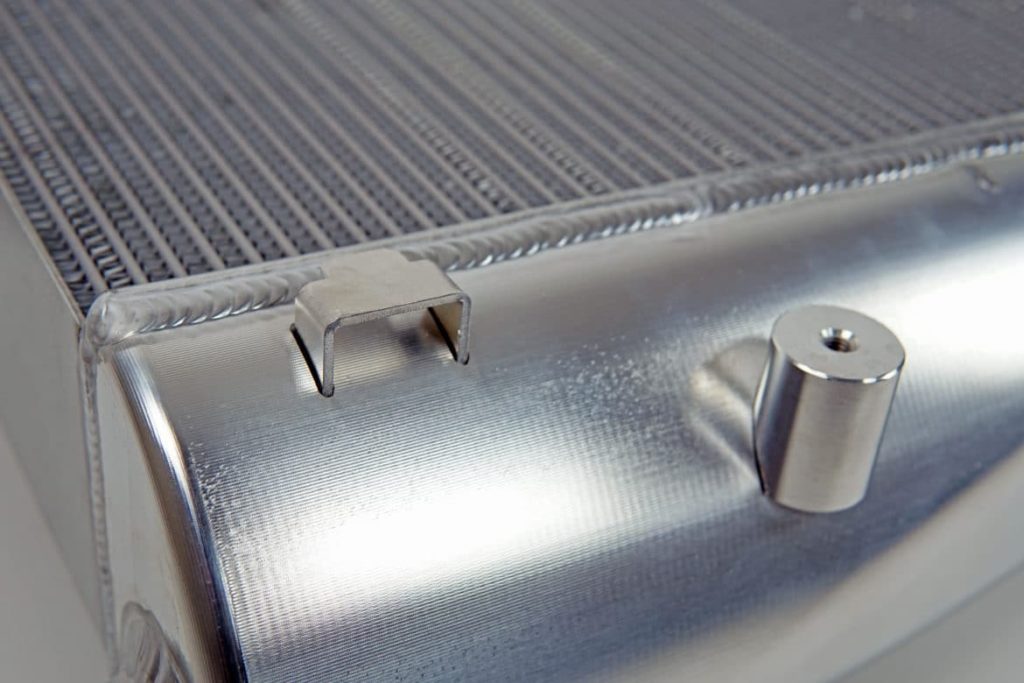
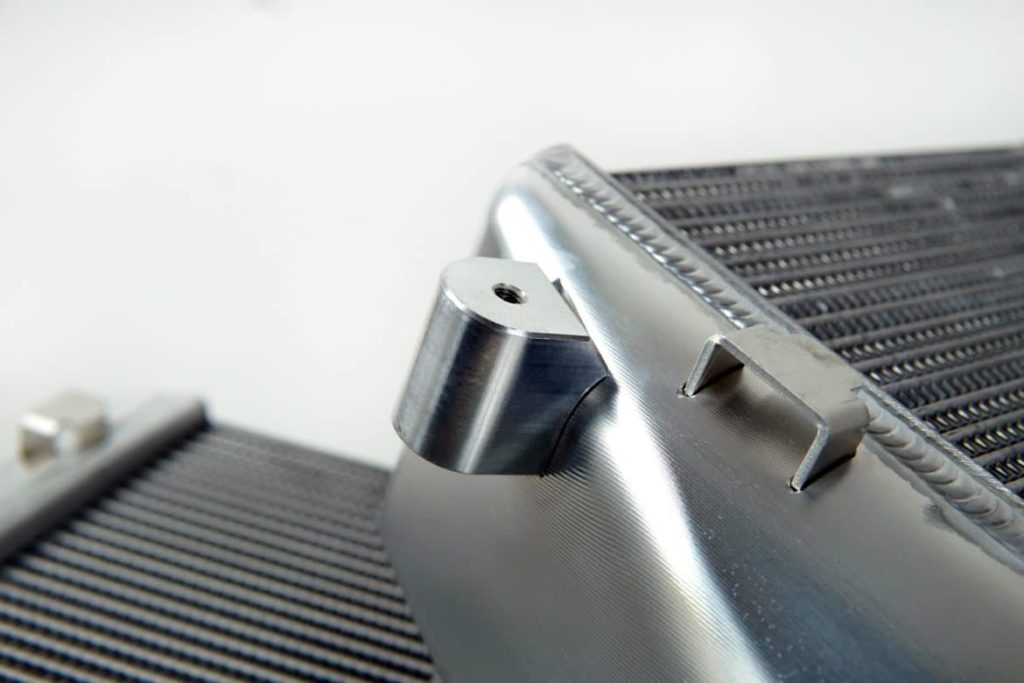







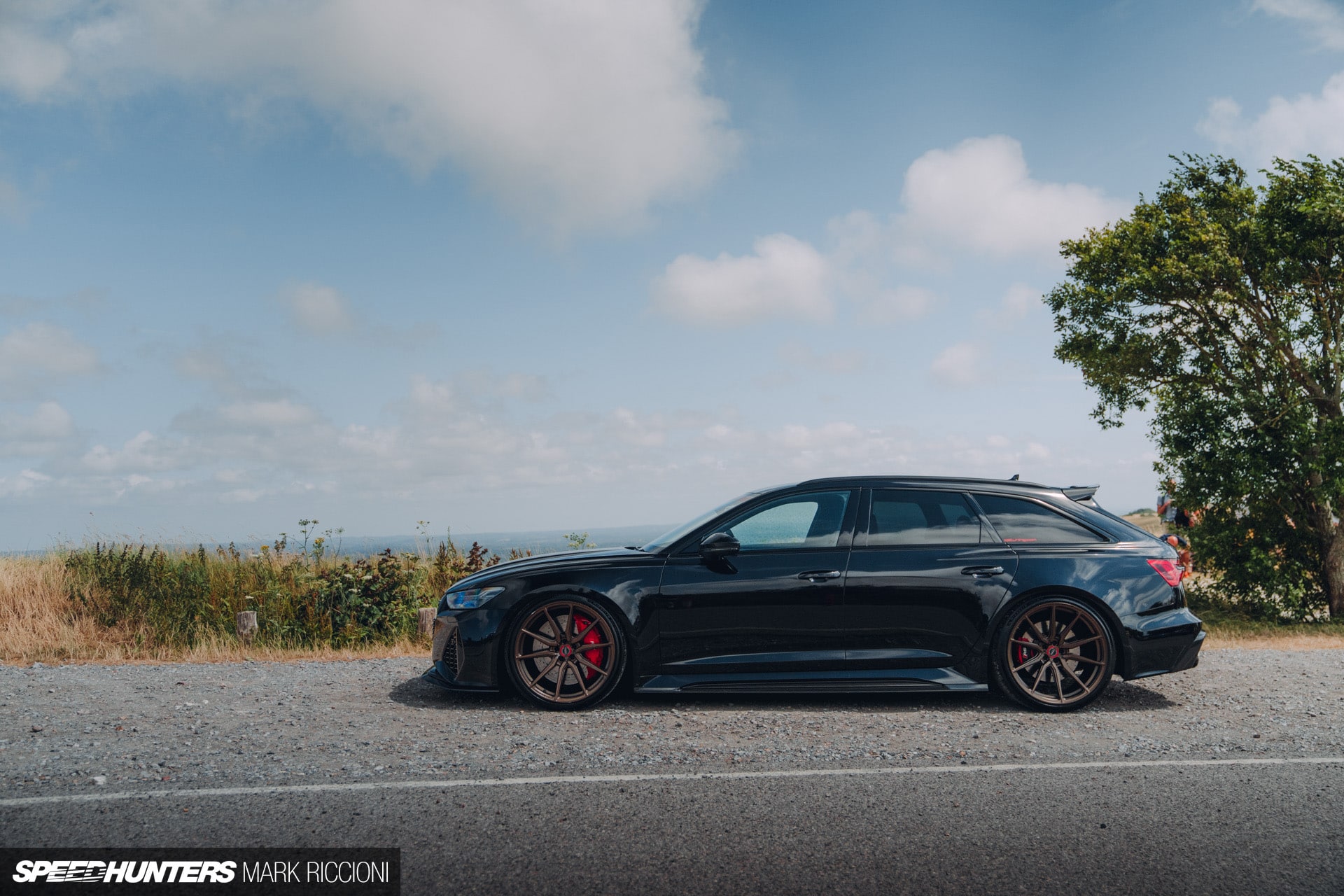




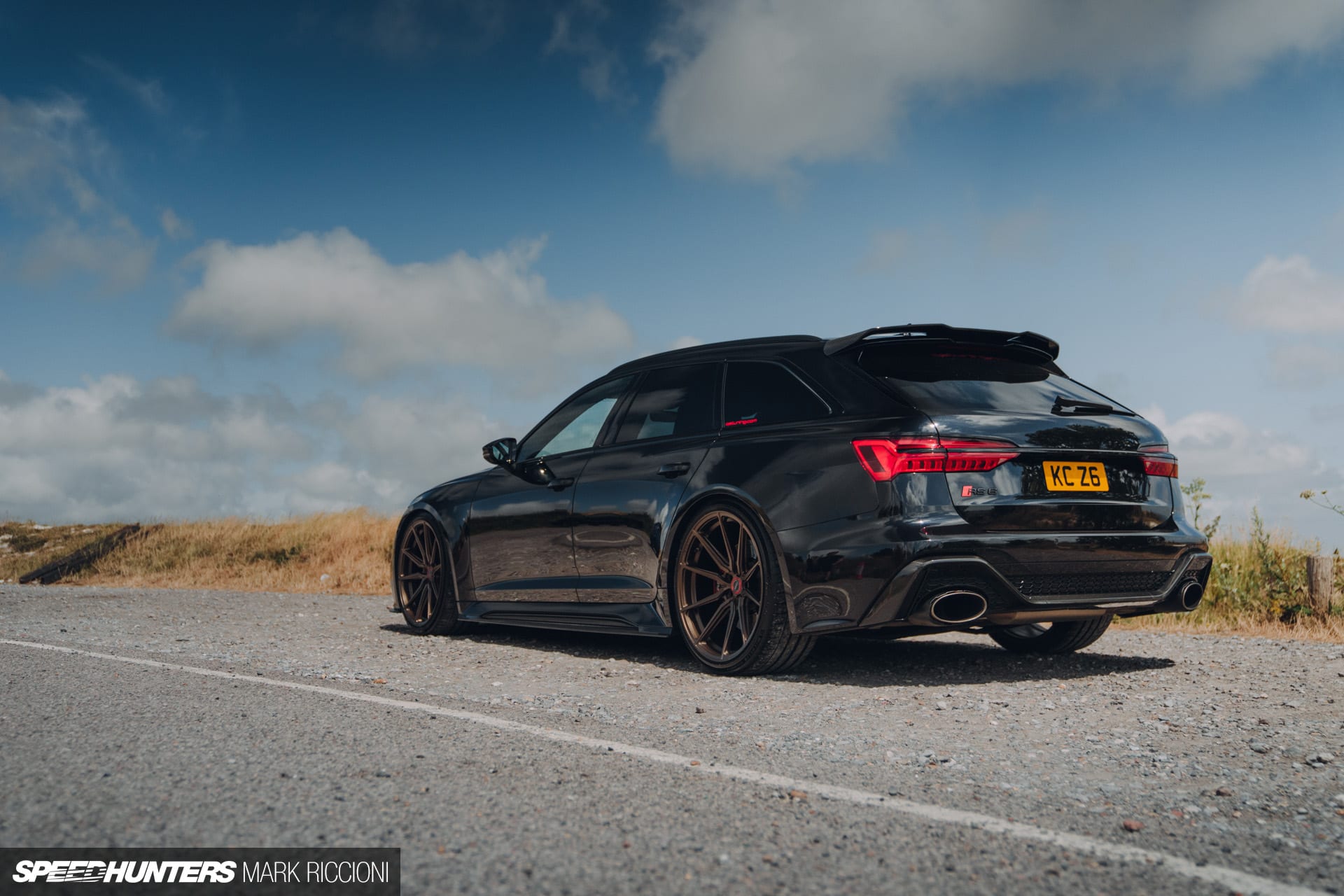

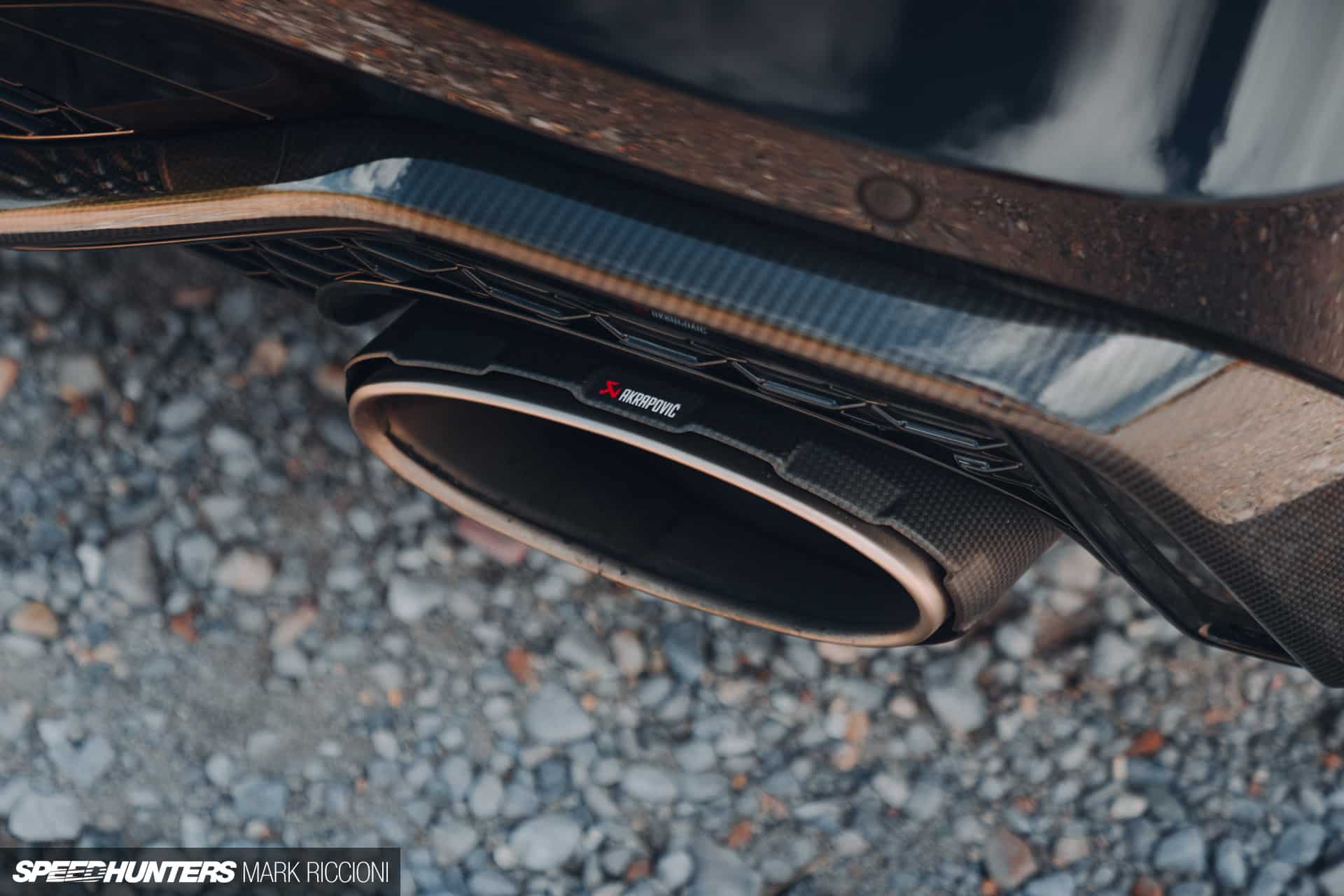
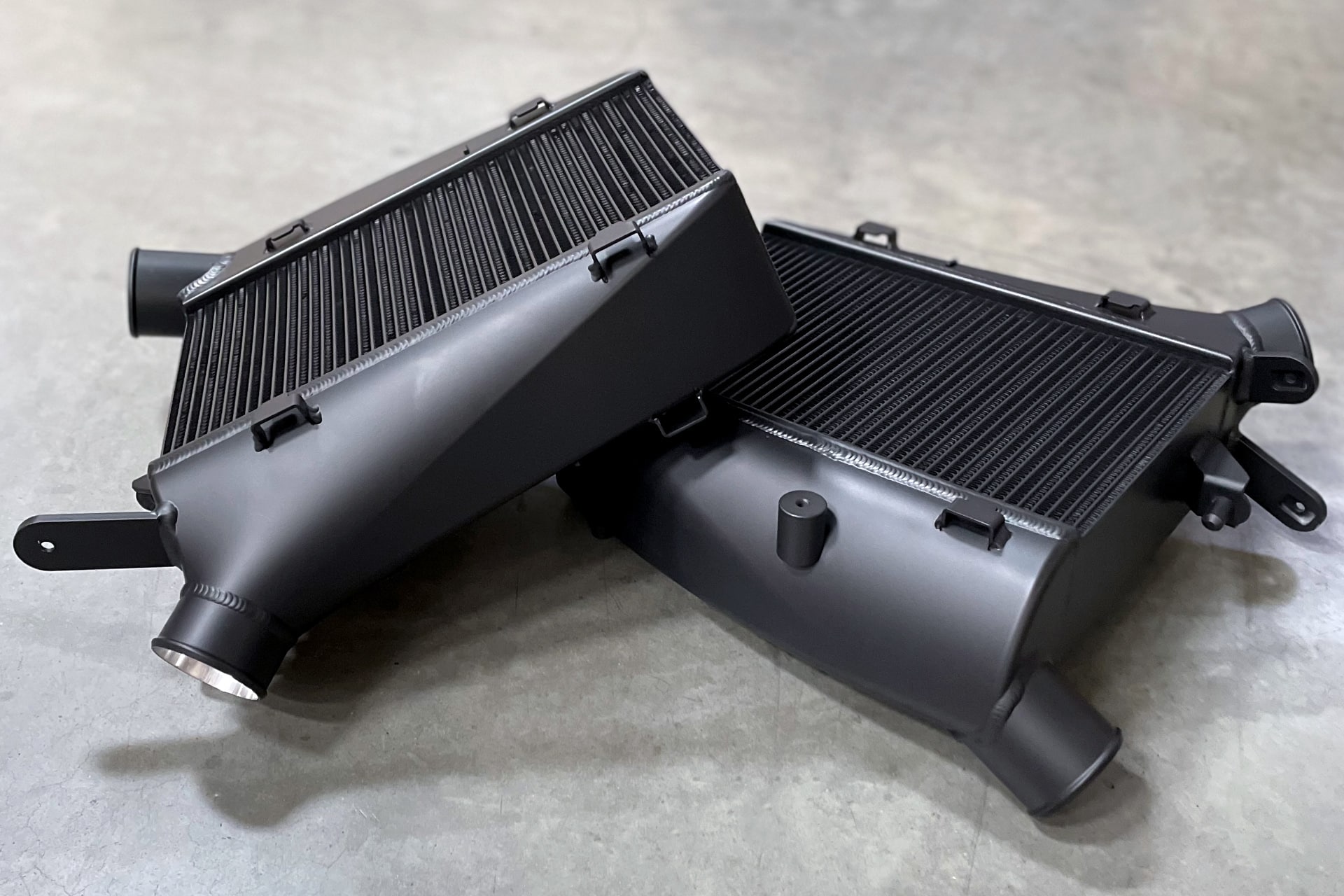
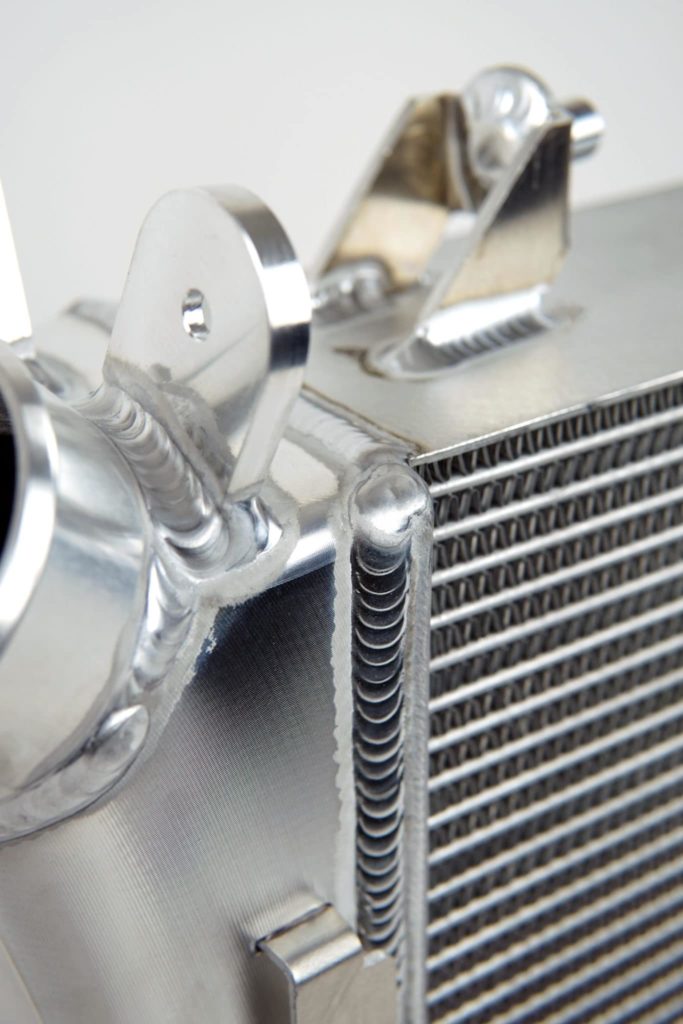
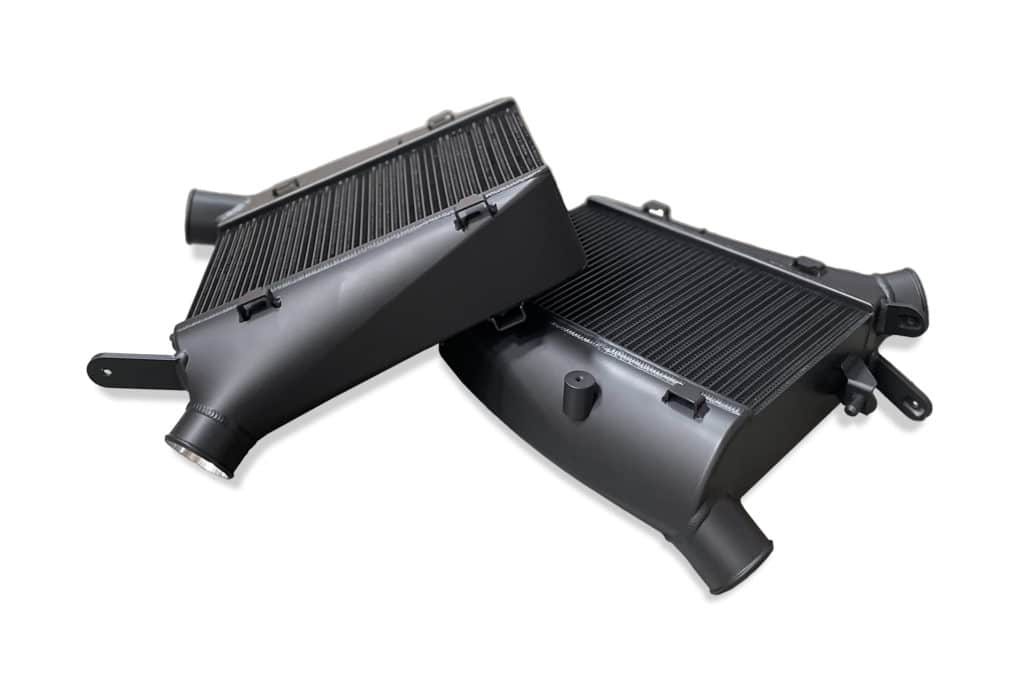
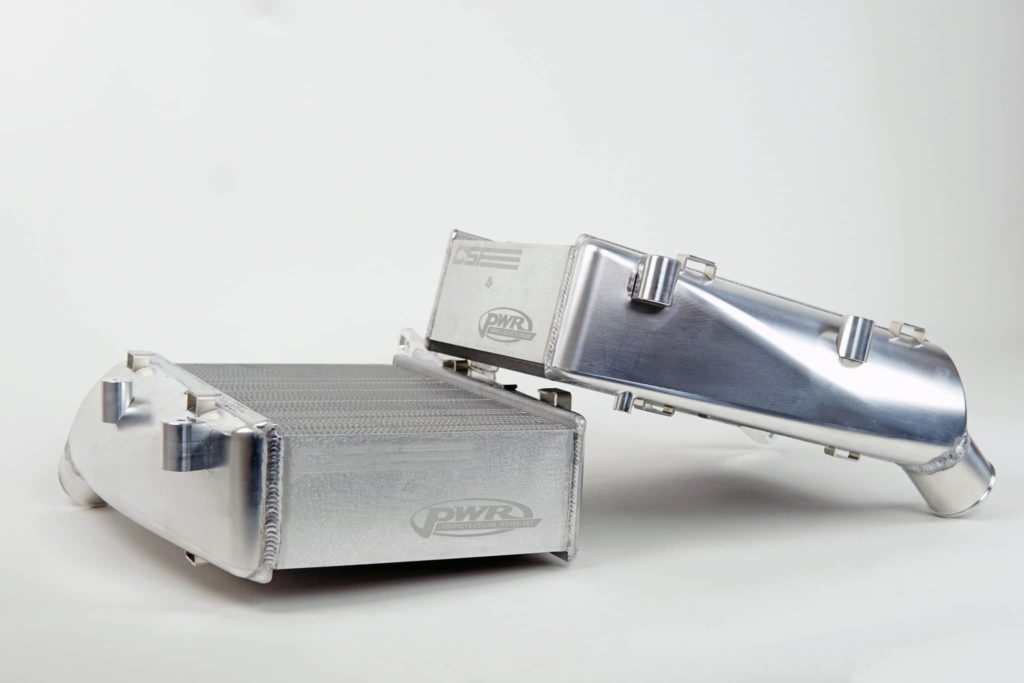
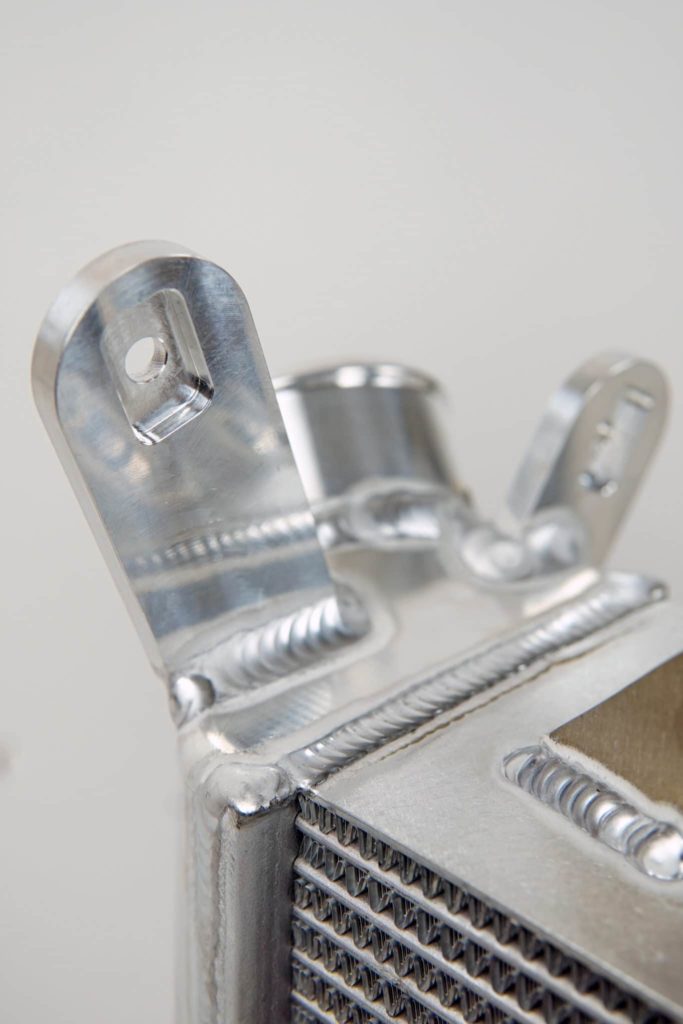




Do you have any reviews or comparisons between your system and the Comp. Intercooler Kit offered for the C8 RS-6 from WAGNER TUNING?
Hello Rick,
I do not believe there has been any official 3rd party comparison testing between the systems and I was unable to find any reviews. However, I can point out some of the main differences between the kits. Though some of this will be conjecture based on the limited data available from Wagner.
1. The CSF Intercooler uses Formula 1 grade cores from PWR. The PWR Core offers much better air flow and cooling capacity than a traditional Tube & Fin design like the ones found on the Wagner System. The Wagner kit comes with the carbon shrouds because the cores are significantly larger (thicker) than the OEM cores. Most intercooler cores rely a lot on size to improve cooling. The CSF by PWR Intercooler system utilizes the factory shrouds and is a true drop-in fit replacement. We are able to retain the factory sizing because we use the much more efficient core design from PWR. The addition of the silicon hoses to the Wagner kit are mainly for fitment. If you look at the coolers side by side you can see that at least one of the inlets on the Wagner coolers does not match the angle of the OEM units. The OEM hoses are strong enough to not require replacement as we have seen them used in applications pushing over 1000hp.
2. The CSF Intercooler has 2 row cores with 45 tubes (46 rows of cooling fins) while the Wagner appears to be use single row cores with 22 tubes (23 rows of cooling fins) which is the same number as the OEM units. The dual row cores and additional cooling tubes/fins from CSF offer additional surface area for cooling.
3. The CSF Intercooler end tanks are made from Billet Aluminum vs what appear to be Cast Aluminum end tanks from Wagner. Billet construction is both stronger and lighter than cast providing improved durability in high boost applications. I could not find a product weight for the Wagner system, but the CSF system should be several pounds lighter.
Please feel free to reach out if you have any additional questions regarding this system.
hi CSF.
how can i order the intercooler for rs6 c8
Hello! You can purchase from any of our dealers: https://csfrace.mystagingwebsite.com/where-to-buy-csf-performance-cooling-products/